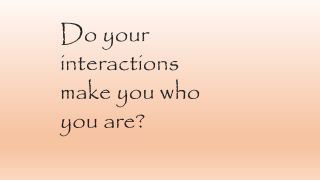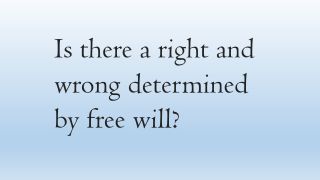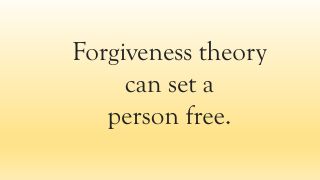Forgiveness
Who Is the Cause of Romantic Breakups? Two Theories Examined
"It takes two to break up." Is this always sound psychological theory?
Posted April 17, 2023 Reviewed by Michelle Quirk
Key points
- Be very aware of the philosophical implications of your views of who is at fault if you have broken up with a partner.
- Some psychological theories state that both always are at fault because it is the dynamics of the system that create behaviors.
- Other theories state that there is right and wrong, and some people choose to behave badly, invalidating the view that both are at fault.
So, you have broken up with your partner. Now the reflections begin: What did I do to contribute to this situation? Might I have done better? Why am I feeling so guilty? The unrest can last for a long time.
The ruminations, guilt, and unrest are not at all unusual. As the expression goes, it takes two when a romantic relationship ends. Yet, is this always the case? It is important to explore this so that you do not necessarily have false regrets. I present here two contrasting philosophies with psychological implications as you examine the breakup and your part in it. We start with family systems theory and then turn to the theory underlying forgiveness therapy.
Family Systems Theory
Family systems theory emerged in the 1950s at a time when the philosophy of materialism was dominant within psychological theories, particularly with the behaviorist views of B.F. Skinner (1953). As is now familiar, Skinner reduced personhood to the accumulation of positive and negative reinforcements applied to any person as well as the kinds, timing, and frequency of punishments perpetrated onto that person. From a philosophical perspective, this is pure materialism, the assumption that we become the person that the material world shapes us into being.

Entering in the 1950s is a cousin of behaviorist materialism: family systems theory. This theory assumes that you are the person you are today because of the numerous interactions you have had with others. In other words, it is the interactions that make you who you are, not the interior work of struggling to know the truth and to conform your will to operating in a virtuous way toward that truth of who we are as persons. Here are some quotations to show that family systems theory is centered on interactions as the cause of who you are as a person, not the interior work you do to become more human:
- "Family systems theory is an approach to understanding human functioning that focuses on interactions between people in a family and between the family and the context(s) in which that family is embedded" (Watson, 2012).
- "As a social system, a family is conceptualized as having its own characteristics, rules, roles, communication patterns, and power structure above and beyond the individual" (McGinnis & Wright, 2023).
- "Family systems theory also arose in the late 1950s....and staked its unique claim by proposing that psychopathology does not reside in the individual, but rather in a disturbed system of family relations" (Kerig, 2011).
More quotations similar to the above can be found here.
The takeaway message is clear: Your partner and you together, in interaction with one another, caused the breakup. Your interactions within your family of origin have contributed to your form of behavior toward your partner and your partner's earlier interactions with family contributed as well. Together, you created interactions that were not rewarding, perhaps even punishing, and so both of you share the blame.
Forgiveness Theory

Forgiveness theory, derived from forgiveness therapy (Enright & Fitzgibbons, 2015), gives a very different philosophical picture. This theory assumes that there is such an issue as right and wrong and people have a free-will choice to engage in actions that either uplift others or tear them down. When this happens by a free will (and therefore internal choice by the one engaging in the behavior), then it is the responsibility (and, yes, the fault) of the one behaving badly to admit to this and to change. If this hurtful behavior does not change, then the recipient of the unwanted behavior does not have to reconcile.
This view places responsibility for wrong behavior squarely on the individual engaging in it. There is plenty of room in this theory to see how a wrongly acting person can be influenced by the family system and other systems such as the workplace, but it does not take the materialist view of inevitability, the sense that because the system hurt the wrongdoer, then the hurtful behavior is inevitable. Instead, this theory assumes that the family system created a challenge and this challenge can be overcome by understanding the personhood of all people, particularly the important insight that no person should be used, manipulated, and treated as less than possessing inherent worth.
So, Then, Who Is Responsible for a Romantic Breakup?
The failure to reconcile does not fall to both parties in forgiveness theory. Forgiveness theory clearly states that one person, and only one person, can be responsible for the breakup because of an unwillingness to change. In other words, it is not assumed that the inappropriate behavior just couldn't be helped. Instead, there is choice here, a choice to not fight within oneself against morally wrong tendencies. There also is a choice by the one who is the recipient of the bad behavior, to stay and try to help or to leave, having tried over and over to help with no positive response from the other.

Of course, there is a danger of presumption here in forgiveness theory. We have to be careful not to presume that it always is the other person's fault no matter what. Sometimes both parties are at fault because both behaved badly. To discern this takes honesty, wisdom, and humility to see if each played a part in the breakup. If after careful discernment, trying to be as honest as possible with oneself, the person concludes that the self's actions were not severe enough to warrant a breakup, then it is important to own this conclusion. Forgiveness theory can set a person free by concluding that (a) I truly tried my best; (b) despite my many attempts, the other used free will to reject my overtures of caring and love; and (c) for the sake of my own integrity as a person, I could not remain in such a relationship. It is then that forgiving the other for an unwillingness to meet you halfway can set you free of guilt and of resentment, and restore your own integrity as a person who now realizes that you deserve to be treated with respect.
Does it take "two to tango" as the expression goes? Be careful which philosophy of humanity you embrace as you answer this question. The assumptions within any given psychological theory have important philosophical implications of how you view interactions, how you view other people, and how you eventually view yourself and the parts you play in important relationships.
References
Enright, R.D. & Fitzgibbons, R. (2015). Forgiveness therapy. APA Books.
Kerig, P.K. (2011). Psychopathology, models of. In B.B. Brown and Prinstein, M.J. (Eds.), Encyclopedia of adolescence. Academic Press.
McGinnis, H.A. & Wright, A.W. (2023). Psychology and behavioral factors. (2023). In B. Halpern-Felsher (Ed.), Encyclopedia of child and adolescent health, volume 2. Academic Press.
Skinner, B.F. (1953). Science and human behavior. Macmillan.
Watson, W.H. (2012). Family systems. In V.S. Ramachandran (Ed.), Encyclopedia of human behavior. Academic Press.




